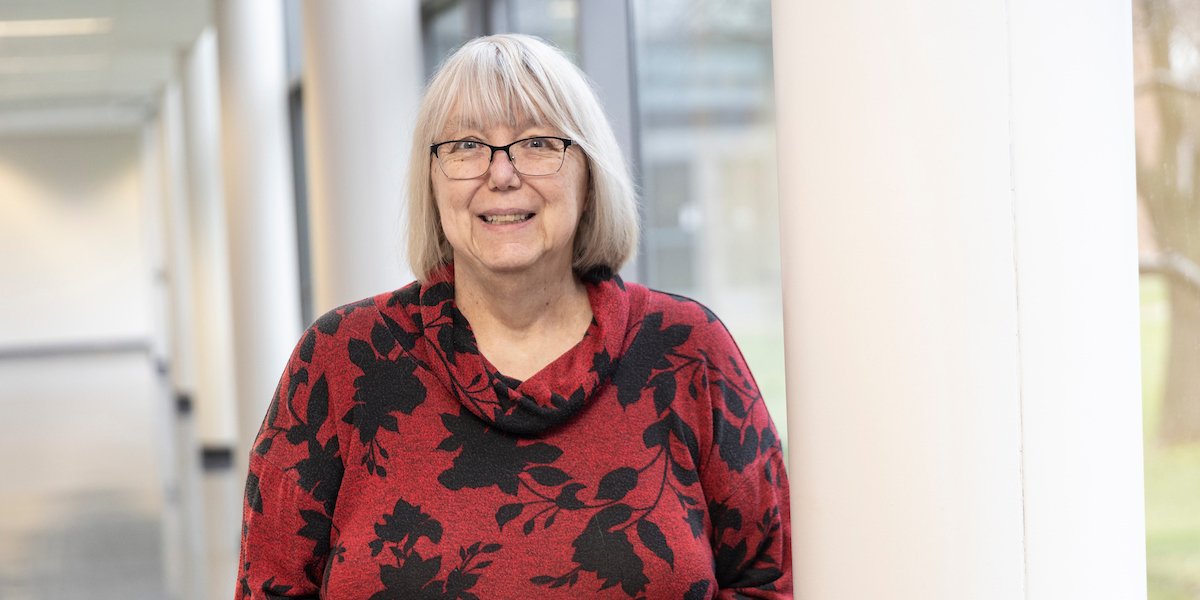Revamped Higher Education and Student Affairs Program will provide relevant professional opportunities
Graduate students will bring hands-on experience to highly competitive job market

In March 2023, Deborah Taub, professor and the chair of the Department of Student Affairs Administration, attended the American College Personnel Association conference in New Orleans and listened with interest to the frustrations of the faculty and professionals in attendance with regard to new professionals.
Many of the challenges were also reflected in what Taub was hearing from recent graduates.
“What I hear from our new graduates is that there are gaps in what they know and what they know how to do,” Taub said. Students said they struggled with things such as budgeting and supervision. “And it is because they didn’t have opportunities to perform these tasks as graduate assistants.”
Armed with the perspective of her peers and recent graduates, Taub was inspired to sketch out the notes for a major overhaul of the curriculum — the first in years. Taub wanted to tweak the program in a way that was solid pedagogically and would specifically help Binghamton graduates be more career-ready and more competitive in the job market.
She presented her ideas to the faculty and received positive feedback. From there, revisions were worked on throughout the summer and fall. “We ended up talking about several things,” Taub said. “One of them was expanding opportunities for hands-on experiences.”
The result of that work is the new Higher Education and Student Affairs program. The name change is meant to be reflective of the fact that the nature of the organizational structures of many colleges and universities are evolving, said Brian Rose, the vice president for student affairs and a faculty member who worked with Taub on the revamp.
“Our students are going to learn the skills to be capable of filling all those kinds of positions,” Rose said. “So, we wanted the program name to be reflective of the breadth of careers within higher education.”
The program now encompasses multiple hands-on learning experiences in various campus departments.
“We have a great laboratory on our campus,” Rose said. “We have an award-winning career services program; we’re doing things within residential life that are first of their kind, like introducing social workers and clinical social work students into residential life staff. And we also have an approach to health education and health and wellness that is nationally recognized, so we know we provide a really great employment context for students to learn from.”
First, the program will require students to rotate through several campus offices that will give them exposure to a variety of diverse functions and jobs that they might not have thought about pursuing. “And that also will be aimed specifically at skill building in each area,” Taub said. Students will learn about how various functions like academic advising or student affairs contribute to student success and where they fit within the university. “They also work on things like administrative skills or working one-on-one with students.”
Next, students will be required to complete a 10-hour-per-week internship that will place them within a specific office for the entirety of the semester. Finally, the third component in a student’s last semester will have something akin to a field placement in education or social work, where students will be required to work around 20 hours a week and receive a stipend for their work.
“We think this will distinguish the program in terms of preparing students to be successful right out of the gate when they start in jobs and will also help them be more successful in finding jobs right out of school, because they will have genuine professional experiences from within the program itself,” Rose said.
“Every program will say they do theory to practice,” Taub said. “However, I think this brings a greater intentionality and commitment on the part of Binghamton University and this program to really do that and do that well.”

